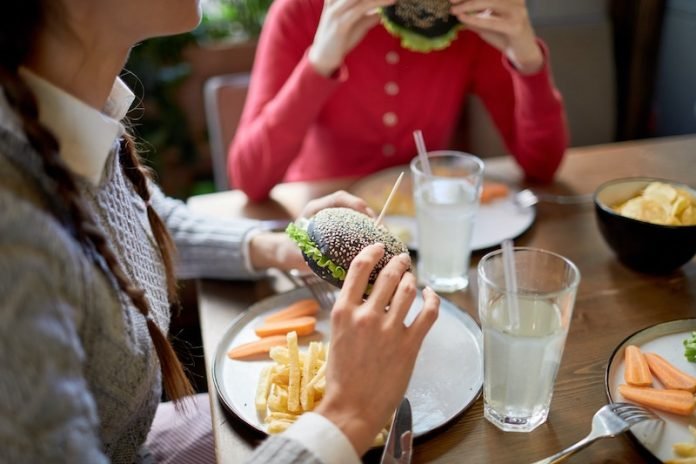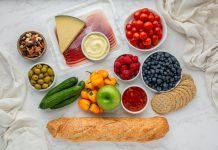
We all get stressed sometimes, and when we do, grabbing a high-calorie snack might seem comforting.
But scientists in Sydney say that stress and high-calorie snacks together could lead to a bigger problem.
This mix could change your brain in a way that makes you want to eat more. It could also lead to cravings for sweet, yummy food and cause you to gain too much weight.
Stress vs. Brain
Researchers from the Garvan Institute of Medical Research found out that stress can overpower the brain’s usual ‘full’ signal, which tells us to stop eating when we’ve had enough.
They found that a part of the brain, called the lateral habenula, is usually in charge of lowering these ‘eat more’ signals. But when we’re stressed, it doesn’t do its job, making the brain keep telling us to eat.
Professor Herzog, the lead scientist of the study, said, “When you’re stressed and eating high-calorie food, you end up eating more and more.
You also start liking sweet, yummy food, which can make you gain weight and become obese. Our research shows that it’s super important to eat healthily when you’re stressed.”
Stress, Food, and the Brain
Some people eat less when they’re stressed, but most of us eat more and go for high-calorie, sweet, and fatty foods.
The scientists wanted to understand why this happens, so they looked at how different parts of mouse brains reacted to stress under various diets.
They found that the lateral habenula, which usually turns off the brain’s ‘eat more’ signal, works well in mice eating a high-fat diet for a short time. It stops them from overeating.
But when the mice were stressed for a long time, this part of the brain stopped working. The ‘eat more’ signal kept running, making the mice eat even when they weren’t hungry.
Dr. Kenny Chi Kin Ip, who was part of the research team, explained, “Stressed mice eating a high-fat diet gained twice as much weight as mice eating the same diet without stress.”
The Molecule Behind It All
The scientists found that a molecule called NPY was behind all this weight gain. The brain makes NPY when we’re stressed.
When they stopped NPY from working in the brains of stressed mice eating a high-fat diet, the mice ate less and didn’t gain as much weight.
The Sweet Tooth Test
The researchers gave the mice a choice between drinking regular water and artificially sweetened water.
Stressed mice eating a high-fat diet drank three times more sweetened water than unstressed mice on the same diet. This showed that stress not only makes us eat more but also makes us crave sweet food.
Interestingly, they didn’t see this sweet tooth in stressed mice eating a normal diet.
The Balance of Energy
Professor Herzog said that eating a lot when you’re stressed can be useful because it gives you energy and makes you feel good. But if you’re stressed for a long time, it can lead to unhealthy eating and weight gain.
According to the researchers, stress can control our eating habits and even stop the brain from balancing our energy needs properly.
Professor Herzog added, “Our study shows how stress can ruin a healthy energy balance. It’s a reminder to avoid stress, and if you’re dealing with long-term stress, try to eat healthily and stay away from junk food.”
If you care about weight loss, please read studies that hop extract could reduce belly fat in overweight people, and early time-restricted eating could help lose weight.
For more information about weight loss, please see recent studies that low-carb keto diet could manage obesity effectively, and Keto diet could benefit overweight people with type 2 diabetes.
The study was published in Neuron.
Copyright © 2023 Knowridge Science Report. All rights reserved.




